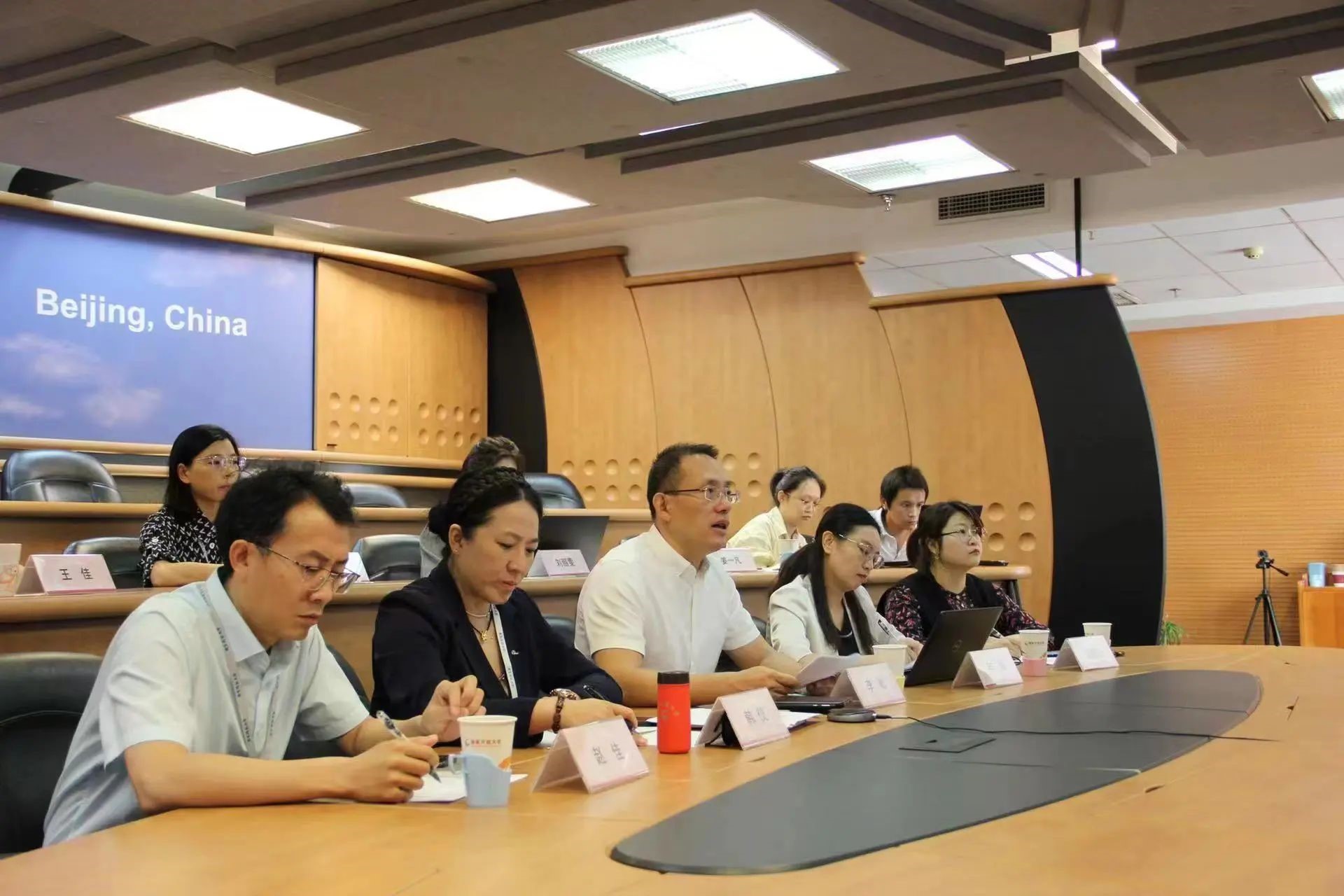 On 14 September 2023, the Open University of China (OUC) convened its 2023 teaching quality inspection and strategy meeting via video conference.
On 14 September 2023, the Open University of China (OUC) convened its 2023 teaching quality inspection and strategy meeting via video conference.
In attendance at the primary venue were Li Song, a member of the OUC Party Committee and vice president; Han Yi and Zhao Jia, director and deputy director of the Department of Quality Monitoring and Control, respectively; Shen Juan, deputy director of the Academic Affairs Department; along with other key members from the Academic Affairs Department and the entirety of the Department of Quality Monitoring and Control. Leaders from 44 OUC branches and 17 schools, responsible for quality assurance, along with their respective departmental heads and associated staff, participated remotely. The proceedings were chaired by Han Yi.

Li Song noted that while significant strides have been made in standardizing school operations, establishing brand recognition, and enhancing quality across the entire OUC system, further meticulous endeavors are needed. The next phase should prioritize establishing a management loop centered on issues, objectives, and outcomes. Vigilant supervision and reinforcement are essential to ensure that tangible changes occur in areas of concern. It is also imperative to translate the learnings from thematic education campaigns into actionable steps that drive excellence and elevate quality.
Li Song has posited four imperative criteria concerning quality governance in open education. First and foremost, it is essential to unify our perspectives and steadfastly adhere to the “five persistence” quality paradigm. Secondly, there must be an integrated initiative to shape a comprehensive, closed-loop system for quality governance. Educational institutions at all levels should primarily bear the responsibility for their operations, enhancing their capability to identify and rectify issues, thus preserving the esteemed reputation of open education. Within the OUC framework, a coordinated strategy should be inaugurated to adopt the list-management technique. This strategy should be meticulously tracked on a designated timeline to ensure the precise execution of measures. Institutions operating on a four-tiered hierarchy should collaborate to maintain rigorous quality control within their respective domains, establishing a closed-loop system for quality assurance in open universities. A holistic quality management methodology must be in place to champion the superior progression of open education. Thirdly, assiduous efforts are needed to foster a novel educational and pedagogical ecology founded on standard operational practices. The ambition is to actualize consistent, standardized, and institutionalized quality governance within a span of three to five years, thereby enhancing the brand and proliferating the distinctive traits of open education. Lastly, relentless endeavors are called for to script a pioneering narrative in educational leadership. This undertaking is not merely the collective duty of all Party members and society but is also a shared mission for educational entities at every tier.
Shen Juan reported on an analysis of the status of 2022 online teaching inspection and outlined the strategies for online teaching inspection in 2023. Feng Lihong, a member of the Party branch committee within the Department of Quality Monitoring and Control and also a member of the Commission of Discipline Inspection, provided an overview of the outcomes and challenges encountered during the remote class observation and evaluation in the spring semester of 2023. She further delineated the primary considerations for class observation and evaluation in the upcoming semester. Zhao Jia presented a comprehensive report concerning the university’s teaching inspection and elucidated the criteria for the comprehensive process evaluation. The results from the comprehensive rating for the 2022 teaching inspection were disclosed, and key objectives for the 2023 comprehensive teaching inspection were established. Han Yi emphasised the necessity for sustained efforts to reinforce closed-loop management across various school-operating units. This is crucial to enact the OUC's strategies, establish a durable quality governance mechanism, and foster a conducive environment for talent development. The ultimate goal is to ensure the high-caliber progression of open education.
Written by Liu Liwen and Chen Xiu; photographed by He Dandan